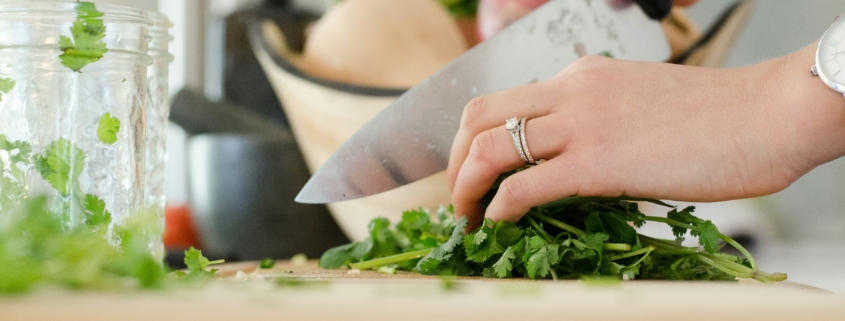Nutrition Tips to Support Radiotherapy Recovery
Facing a battle against cancer can be one of the most daunting prospects anyone can be confronted with. It is not just the reality of our mortality – since we will all die eventually – but the uncertainty of outcome, both for you and your loved ones.
At the same time, a cancer diagnosis can bring out the fighter in many people. The best attitude anyone can have is not a fatalistic one, but a determination to do what not takes to beat the disease, or at least to extend life as long as possible. This is often the attitude of those who are always determined to make the most out of every single day life brings.
However, there will be inevitable compromises. Radiotherapy centre visits will be regular events and therefore will mean there are many days when you don’t have the freedom to go about your normal business or pursue your preferred activities.
Also, the treatment is likely to bring a range of side effects, which can include symptoms like fatigue, hair loss, nausea, skin changes and – for those whose treatment focuses on the abdomen – stomach trouble, and urinary problems like incontinence. For those with cancers in the pelvic areas, the consequences can include sexual dysfunction and infertility.
This will inevitably mean that while you want to continue life as normally as possible, it will never be exactly normal. Some things will change.
Why Your Diet Must Change
While these are the consequences of treatment, there are also some aspects of your lifestyle you need to alter yourself, including your diet.
This is because the effects of radiotherapy on your body can make you vulnerable to certain problems that can arise when you consume food, either making bad things worse or simply making normal things into a problem. At the same time, however, there are foods that can help you cope better with the treatment and are therefore an ally in your cancer battle.
Firstly, there are the foods you should cut out of your diet. For example, if you like fish you can still enjoy this when it is cooked well, but you must avoid raw fish and shellfish, such as sushi, clams or oysters. Smoked salmon, soft-boiled eggs, soft cheese and cheese made with unpasteurised milk should also be avoided.
The reason is that all these can contain a lot of bacteria. That might normally just mean a small bout of tummy trouble, although you can get worse food poisoning. But when you undergo radiotherapy, your immune system will be weakened and that means any bacteria you ingest could be much more harmful to you.
In the same way, you should avoid other risky food choices such as unpeeled fruit and vegetables, while any impact of radiotherapy on your gut, causing stomach upsets and diarrhoea, will be made worse by spicy food such as curries.
If you have treatment around the chest, throat or mouth, avoid sharp-edged or crunchy food, while acidic fruits like citrus or tomatoes can actually cause burns or cuts. Alcohol does this too, so sadly you should avoid that as well. Avoid Saturated fats too. These are bad for you anyway but are hard to digest, which will make any gastric symptoms worse.
What You Should Eat
However, there are also foods you can and should eat that will do you a lot of good, as these can help you suffer fewer and less unpleasant side effects and recover from the therapy faster and more easily. This means you should be eating lots of nutrient-rich products.
While highly acidic fruits may bring problems, others are very good for you, offering lots of fibre and vitamins. Grains, vegetables and lean meats are also very good in providing healthy proteins.
Carefully choosing the ingredients in your meals is an important step, but it is not the only issue. It is likely your appetite will be affected by your treatment and this effect may vary, so you should monitor this. But in most cases, your appetite will be reduced, so the wisest approach is to make your meals smaller but more frequent.
By doing this, you generally will not eat less, while avoiding getting bloated by consuming a big meal. At the same time, if your appetite is greatly reduced, the quality of the proteins and nutrition you get will help to compensate for a smaller intake.
Planning For Healthy Eating
To ensure you eat well, you need to plan ahead. That means discussing these matters with your doctor to ensure you are eating all the right things and eliminating others, but it also means making sure you are correctly stocked up with the right kinds of food at home.
Because radiotherapy will compromise your immune system, especially if used alongside chemotherapy, you may find you go out less and therefore eating out is something you may not do. This may not be a bad thing, for if you do eat out you will have to be very careful about what you choose.
What To Drink
Alcohol has already been mentioned here as something to avoid. Among its harmful effects is that it is a diuretic, reducing your water when you need to stay hydrated. It is very important to make sure you drink a lot, not least as this will help flush any toxins out of your body sooner, limiting their effect at a time when your immune system is weaker.
Water is the obvious thing to consume, but there are also lots of other healthy alternatives. Because you need to avoid acidic and sugary foods, you should not consume soft drinks, or cordials with high sugar content.
Taking these steps may mean you forego some of your favourite foods and drinks, but it will be worth it because it will make it easier to cope with radiotherapy, reduce additional problems, lower health risks at a time when you are vulnerable and may also establish some good habits.
The last of these factors may be worth thinking about after successful treatment. It might be tempting to celebrate the ‘all clear’ with a hearty meal and a few glasses of wine, but in the longer run, eating and drinking healthily will help you achieve the long, healthy life your radiotherapy treatment may have done so much to increase your chances of enjoying.


